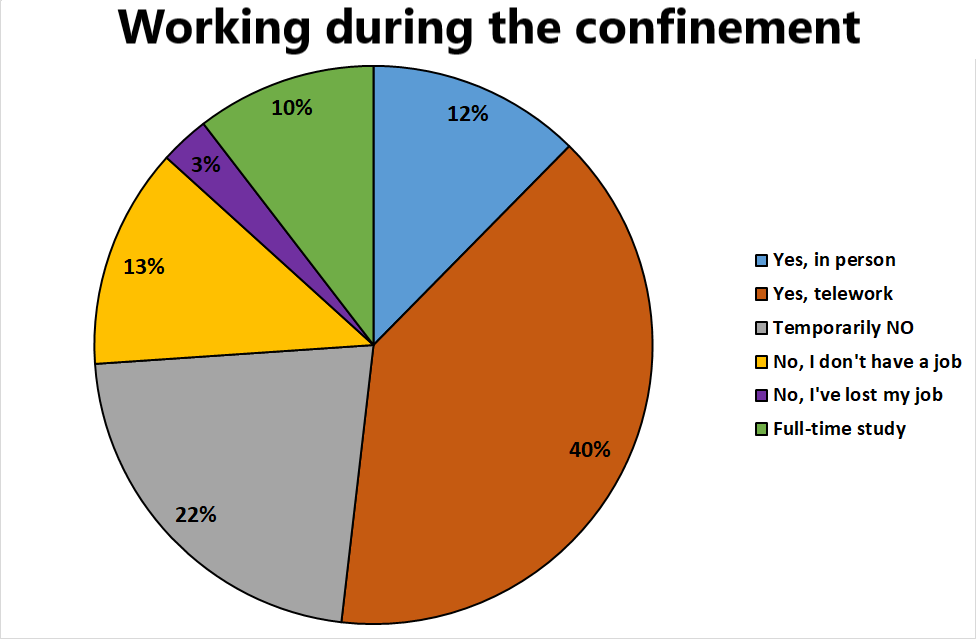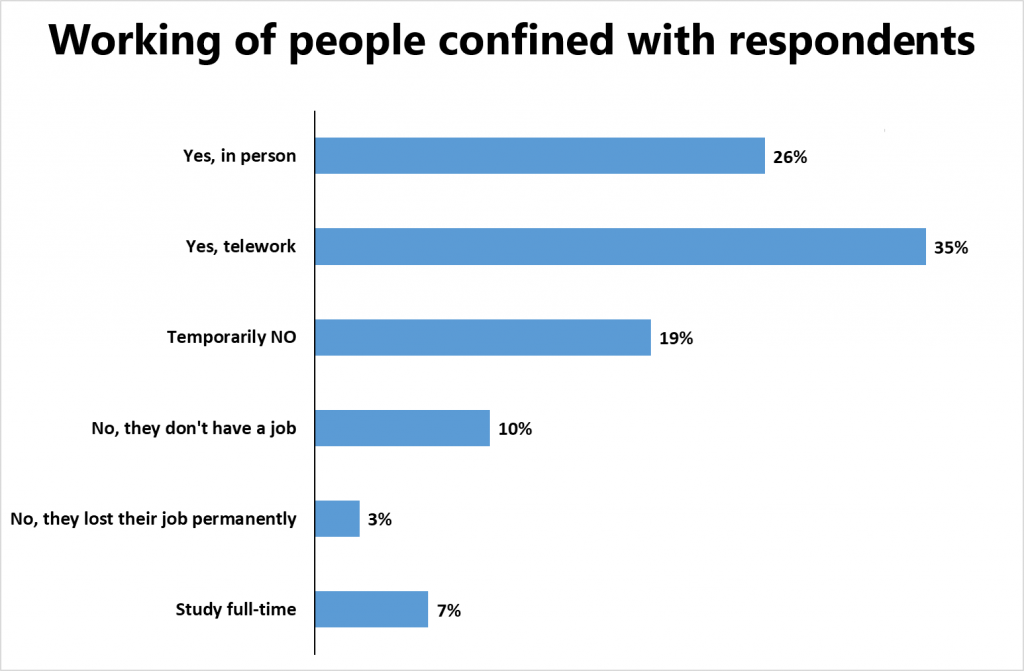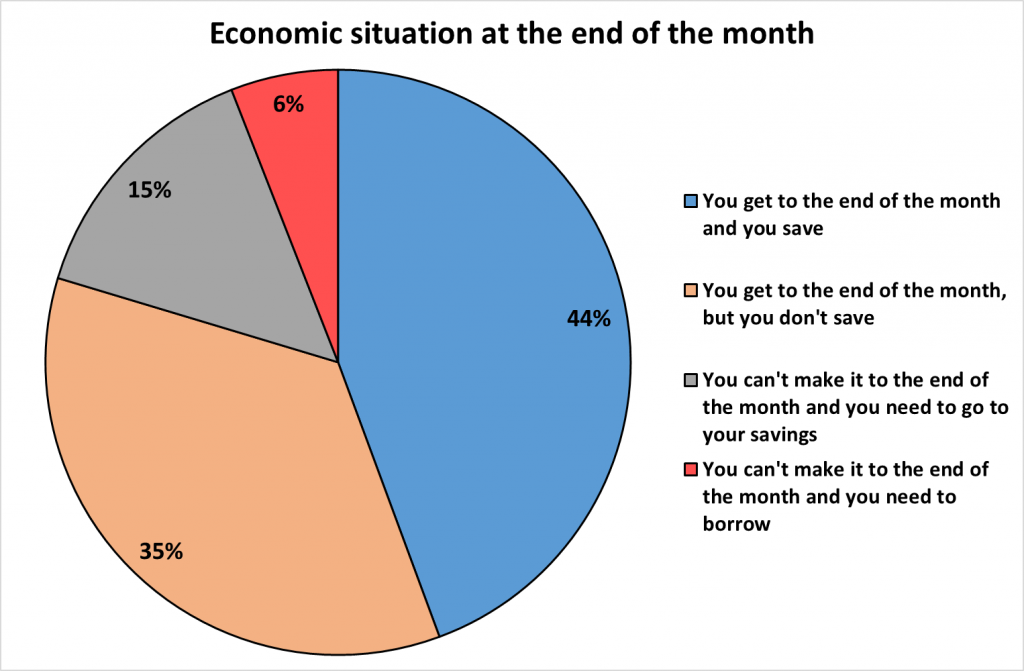This fifth report presents results on the economic situation, housing conditions and work and study organization within households. We have used the 2371 responses to the questionnaire in Spanish, obtained up to May 10th 2020.
85% of the people who respond to our survey are confined to family homes, in different positions and with different characteristics, compared to 9% living alone or almost 6% with friends or others. And as we see below, confinement has radically transformed the role of the home by incorporating the dimensions of school and work center.
62% of respondents maintain their main activity, either attending their workplace (12% of respondents) or at home (40% with telework and 10% studying full-time).

22% have temporarily stopped working, either through employment regulation mechanisms, either using holidays, childcare leaves or working time reductions. In the case of Spain this includes using the Employment Temporary Regulation Proceedings (ERTES) or the so-called «inexcusable duty leave» which in the public sector have protected employees needing to care for sick relatives and those with high health risks who have not had the option of teleworking. Of all the answers, only 3% say they lost their jobs, while 13% had no work at the time.

A large part (68%) of the people who live with our respondents also maintain their main activity. 26% go to work to their workplaces (in services considered essential) while 35% telework and 7% study full-time at home. Only 19% have stopped working temporarily, 10% were no longer working previously, and 3% say they have lost their jobs permanently due to confinement.
It is important to emphasize, in times of pandemic, that in a significant part of households there are people who go to work entering and leaving the confinement spaces daily.
It is interesting to analyze these results along with the respondent’s educational attainment and perceptions of the economic household situation. In this regard, it should be noted that 79% of respondents report higher education (which may be the result of the snowball questionnaire strategy initiated in university environments and/or due to the social characteristics of the virtual space), 16% with middle education, and only 4% with primary or no educational attainment. Regarding the economic household situation, 79% of the respondents make ends meet, and 44% also save, while 15% are using their savings to reach the end of the month, and 6% do not reach the end of the month and need to borrow.

The image of activity and income during the confinement does not yet seem to show a great impact from the crisis, both due to the novelty of the crisis itself and possibly also thanks to the fact that temporary work interruptions are being carried out in a protected manner, accompanied by effective mechanisms for wage income maintenance.
However, production in the broad sense (including education) has been transferred to the home without the conditions of a work or educational environment in terms of spaces, facilities, bathrooms, access to outdoor spaces. Working parents, in addition to cooking (a task that was previously partly outsourced through school and work canteens) now also have to support their children’s new home schooling. This transformation of the home makes the theme of space vital: spaces in households conceived as spaces to sleep or to spend much less time, now host practically all daily activities (work, study, leisure, main and secondary residence…). Possibly all this involves a new management of daily life at home where many are now teleworking, tele-studying, and also immersed in their free time in internet activities that connect us with our loved ones and our social networks outside the home.
Anna Escobedo Caparrós; José Luis Condom Bosch; José Antonio Rodríguez Díaz; Aitor D. Aguayo, «Preliminary results 5: Work and family economy during confinement», (UB: EPP, May 2020).


